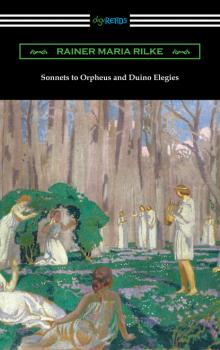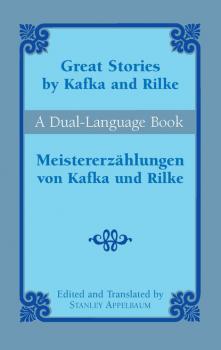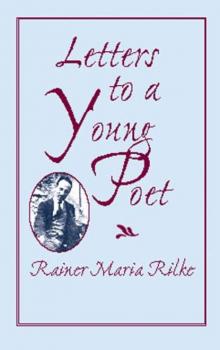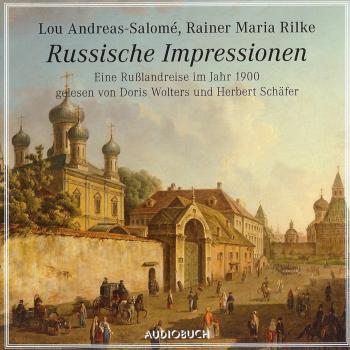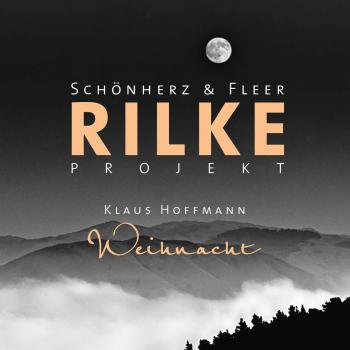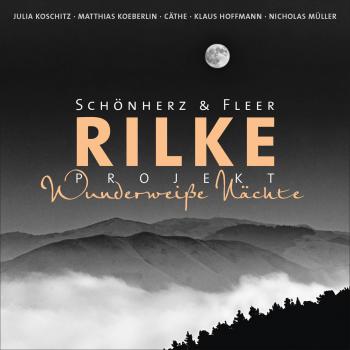ТОП просматриваемых книг сайта:
Rainer Maria Rilke
Список книг автора Rainer Maria RilkeАннотация
The cycle of 55 sonnets that comprise Rainer Maria Rilke’s “Sonnets to Orpheus” were written in a period of three weeks during 1922, a time which the poet himself described as a “savage creative storm.” Inspired by the death of his daughter’s friend, Wera Knoop, Rilke commenced to the production of “Sonnets to Orpheus”, a work filled with mythological and biblical allusions. During the same burst of creative energy he set to working on the completion of the “Duino Elegies”, a work begun some ten years earlier but set aside due to Rilke’s own emotional distress over the tragic events of World War I and his conscription into the Austro-Hungarian army. He wrote in a letter to the deceased girl’s mother that Wera’s ghost was “commanding and impelling” him to write. The results of this “savage creative storm” are generally considered as Rilke’s masterpieces. “Duino Elegies” is an intensely spiritual group of verses that ponders the beauty and existential suffering of life. Together these works exhibit why Rilke is widely recognized as one of the most lyrically intense of all German-language poets.
Great Stories by Kafka and Rilke/Meistererzählungen von Kafka und Rilke - Rainer Maria Rilke
Dover Dual Language GermanАннотация
At the turn of the twentieth century, the city of Prague hosted a cosmopolitan culture whose literary scene abounded in experimental writers. Two of the city’s natives are featured in this dual-language volume: Franz Kafka, whose fiction is synonymous with the anguish of modern life; and the poet Rainer Maria Rilke, whose stories unfold in the same transcendent lyricism as his verse.Twelve of Kafka’s stories from the compilation Ein Landarzt (A Country Doctor) appear here, along with two tales from Ein Hungerkünstler (A Hunger Artist). Rilke's stories include «Die Weise von Liebe und Tod des Cornets Christoph Rilke» (The Ballad of Love and Death of Cornet Christoph Rilke), «Die Turnstunde» (The Gym Class), and Geschichten vom lieben Gott (Stories About the Good Lord). Stanley Appelbaum has provided an introduction and informative notes to these stories, along with excellent new English translations on the pages facing the original German.
Аннотация
In 1903, a student at a military academy sent some of his verses to a well-known Austrian poet, requesting an assessment of their value. The older artist, Rainer Maria Rilke (1875–1926), replied to the novice in this series of letters — an amazing archive of remarkable insights into the ideas behind Rilke's greatest poetry. The ten letters reproduced here were written during an important stage in Rilke's artistic development, and they contain many of the themes that later appeared in his best works. The poet himself afterwards stated that his letters contained part of his creative genius, making this volume essential reading for scholars, poetry lovers, and anyone with an interest in Rilke, German poetry, or the creative impulse.
Аннотация
Rilke's French poetry appears here for the first time in readable, musical versions. Largely unknown and rarely collected, these poems were written during the euphoria Rilke felt after having completed his greatest German works, the Duino Elegies and the Sonnets to Orpheus. At the same time, Rilke was growing increasingly ill with a rare, undiagnosed form of leukemia. He died just four short years into the production of these poems, and death appears in them as «a kindly, unfamiliar figure» to be faced with courage and surrender. Five series of poems are featured: Roses, Windows, Affectionate Tribute to France, Valaisian Quatrains, and Orchards.
Аннотация
Rainer Maria Rilke’s fifty-five <i>Sonnets to Orpheus</i> were written over a few days in an astonishing burst of inspiration. Described by Rilke himself as “a spontaneous inner dictation,” the sequence is among the most famous works of modernist literature, and Christiane Marks’s fresh new translations succeed in evoking Rilke’s music—often sacrificed in translation—opening a new window on these poems, for old and new Rilke lovers alike. The result of nearly two decades of memorization, research, and fine-tuning, Marks’s translations, only the second by a woman and the first by a native German speaker, recapture Rilke’s astonishingly contemporary, often colloquial style.
Аннотация
This comprehensive eBook presents the complete works or all the significant works – the Œuvre – of this famous and brilliant writer in one ebook – easy-to-read and easy-to-navigate: • Poems by Rainer Maria Rilke • Auguste Rodin • Evening • Mary Virgin • The Book of Pictures:
• Presaging • Autumn • Silent Hour • The Angels • Solitude • Kings in Legends • The Knight • The Boy • Initiation • The Neighbour • Song of the Statue • Maidens I • Maidens II • The Bride • Autumnal Day • The Book of Pictures:
• Moonlight Night • In April • Memories of a Childhood • Death • The Ashantee • Remembrance • Music • Maiden Melancholy • Maidens at Confirmation • The Woman who Loves • Pont du Carrousel • Madness • Lament • Symbols • New Poems:
• Early Apollo • The Tomb of a Young Girl • The Poet • The Panther • Growing Blind • The Spanish Dancer • Offering • Love Song • Archaic Torso of Apollo • The Book of Hours: The Book of a Monk's Life • I Live my Life in Circles • Many have Painted Her • In Cassocks Clad • Thou Anxious One • I Love My Life's Dark Hours • The Book of Pilgrimage • By Day Thou Art The Legend and The Dream • All Those Who Seek Thee • In a House Was One • Extinguish My Eyes • In the Deep Nights • The Book of Poverty and Death • Her Mouth • Alone Thou Wanderest • A Watcher of Thy Spaces • etc.
• Presaging • Autumn • Silent Hour • The Angels • Solitude • Kings in Legends • The Knight • The Boy • Initiation • The Neighbour • Song of the Statue • Maidens I • Maidens II • The Bride • Autumnal Day • The Book of Pictures:
• Moonlight Night • In April • Memories of a Childhood • Death • The Ashantee • Remembrance • Music • Maiden Melancholy • Maidens at Confirmation • The Woman who Loves • Pont du Carrousel • Madness • Lament • Symbols • New Poems:
• Early Apollo • The Tomb of a Young Girl • The Poet • The Panther • Growing Blind • The Spanish Dancer • Offering • Love Song • Archaic Torso of Apollo • The Book of Hours: The Book of a Monk's Life • I Live my Life in Circles • Many have Painted Her • In Cassocks Clad • Thou Anxious One • I Love My Life's Dark Hours • The Book of Pilgrimage • By Day Thou Art The Legend and The Dream • All Those Who Seek Thee • In a House Was One • Extinguish My Eyes • In the Deep Nights • The Book of Poverty and Death • Her Mouth • Alone Thou Wanderest • A Watcher of Thy Spaces • etc.

